Zain KSA Strategy is to Become the Operator of Choice
Hassan Kabbani, CEO of Zain KSA
The Saudi telecom market is a very dynamic market. Having worked myself in various countries throughout the region, I know that the Saudi market is also the most important market in the Middle East region.
Interview with Hassan Kabbani, CEO of Zain KSA
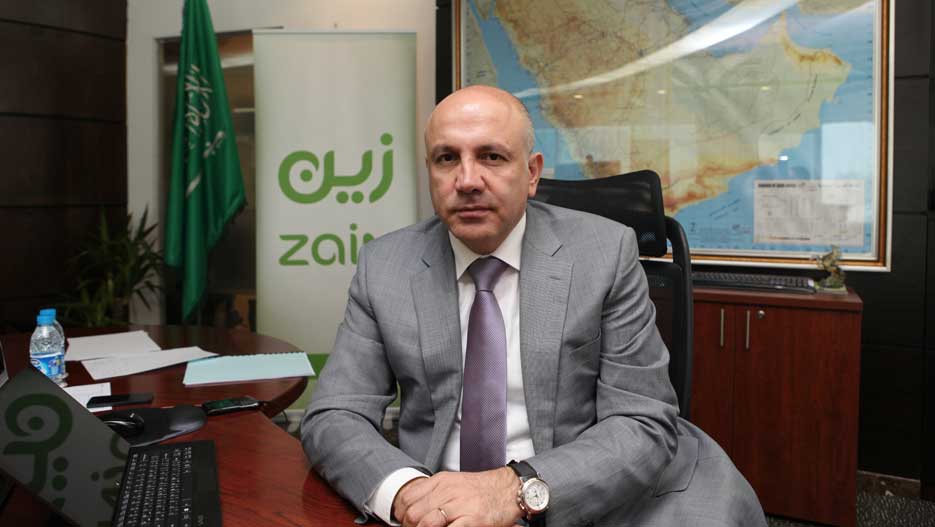
Zain KSA has been active in the Saudi telecom and ICT market for nine months now. It is one of the most sophisticated markets in the region and is dominated by STC (Saudi Telecom Company). What is your perception of the market, particularly compared to other markets in other countries? What is your overall assessment of the telecom and ICT market in Saudi Arabia?
The Saudi telecom market is a very dynamic market. Having worked myself in various countries throughout the region, I know that the Saudi market is also the most important market in the Middle East region. It is very highly developed, and I believe the kingdom has, in fact, been focusing on developing telecommunication services and infrastructure throughout the country for the last ten years. Saudi Arabia is now the top country in the region in terms of the level of usage of telecommunication services, and it is among the top three regions in the world. The Saudi are very much engaged in the digital world and have a huge appetite for telecom services and devices. There is a very high level of mobile penetration, reaching more than 180%, and very high level of Smartphone penetration. All these indicators will tell you just how much the Saudi telecom market is developing and advancing, and how dynamic the sector is.
There is a very high level of mobile penetration, reaching more than 180%, and very high level of Smartphone penetration.
What are the main challenges that you are facing at the moment?
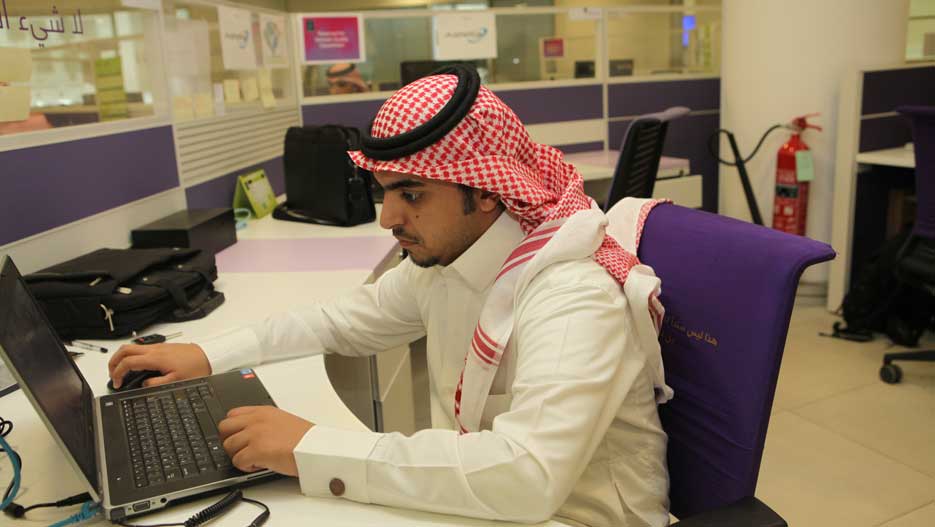
When you are in a market with this level of digital engagement per person, i.e. the consumers are very engaged in the sector and there is a high demand for telecom services, the challenge you face as an operator is to make sure that your infrastructure will be able to cater to the needs of your customers. You therefore need to keep on developing your infrastructure and expanding your capacity and, indeed, network capacity in order to make sure that you continue to meet all the needs that exist in the market.
Another challenge is to do with the trend towards digital and data communication. Consumption is no longer the same as it used to be when the services were pure voice services. With data communication, consumption is being multiplied by figures that no one can forecast yet. We can’t yet predict what the growth will be or where it will stop, or even if it will stop. On the one hand, we’re seeing a high level of growth in data consumption but on the other we don’t what the limit will be. This is a real challenge for operators, because there is a need to expand capacity and use the latest technology to cater for the growing demand, but there is no way of knowing by how much you will need to expand, or how much demand you will have to cater for in the future.
What is your perception of the regulatory environment?
When you are talking about a market that is as highly developed as this one, this level of development cannot happen without a regulatory environment that encourages it. There are a great deal of players and operators in the Saudi market, and they are all offering different kinds of services- from fixed services, to mobile and internet services. As a result, it’s a very dynamic market, and this dynamism is being encouraged by the regulator, who has recently issued licenses for all relevant companies. From an operator’s perspective, we would like to see more regulatory conditions that will encourage us to develop further. For example, we would like to see the regulator providing motivation or some kind of incentive for developing our activities. This would encourage us to make more avail of the latest technologies of the market. This is what we are trying to do, and I believe that, in coordination with the regulator, it is what we are able to do.
You’ve mentioned new technologies as being key for developing the market and supplying demand. What is your approach to innovation and to introducing new technologies to the market?
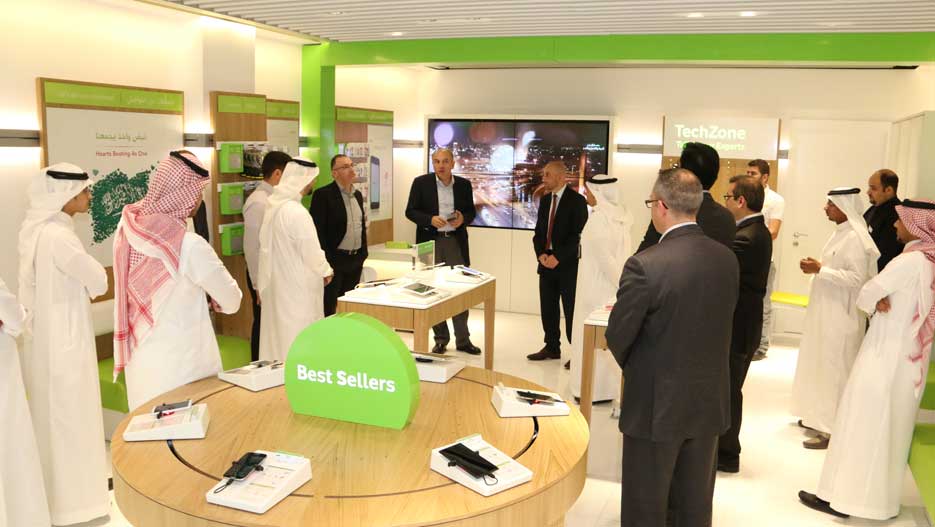
First of all, I think it is important to clarify some confusion that can exist regarding different parts of the value chain and where innovation actually starts. As a telecom operator, our role is to link the technology provider with the consumers and to create a smart environment in which any new technology or innovation can simply be plugged in and used by our customers. This is exactly what Zain is doing in the Saudi market. Right from day one, when we began operations in Saudi Arabia six years ago, we have been building our operations based on the latest technology, using the 4G services for mobile technology, and so this has created an up-to-date network and a smart environment for our infrastructure.
Today, we are now known for our networks and our coverage. The people using our networks are very satisfied with the level of quality of the data communication that they receive from Zain. This essentially how I see the role of the operator: as an enabler for the user to use whatever new technology they would like to.
The market is very competitive and highly saturated. Zain hasn’t been particularly successful compared to the other operators, so what strategy do you deploy to tackle the competition and how do you aim to secure profits in the future? Are you going for scale, for niche, for differentiation?
One point to make is that the view of our company’s success is based on a slightly skewed perception that some people have of us. There is a tendency sometimes to compare Zain’s operations directly with our competitors. As a result, Zain appears to be slightly smaller, simply because we joined the market later than they did. However, if you take us a standalone operation and look at our performance on its own, you will see that we are a very successful company indeed. This is important, because it is always the case when new operators enter the market, some people have the perception that you are struggling to develop and expand your network and may even ask if you have one.
This is certainly not the case with Zain, as our network today covers 98% percent of the population and we have a national roaming agreement with one of the other networks for the area that we don’t cover, which represents less than 1% of our activities anyway. These figures tell you that our network certainly covers the area that we need to be in and the area that we don’t cover does not have to be a priority any more. We have a solid, mature network that basically covers the entire population. We have more than 8.5 million customers and 2,500 employees. We are very active, very dynamic, and very successful operation.
Taken as a standalone operation, we are highly successful, although in comparison with the more established competitors we do look smaller. It is always the case that there is the first company to enter the market, who simply seems to have been around forever, and then you have the second company, which will do very well because the role of the second company is always easier. Then the third company is the challenger, who enters the market and really has to come out with something new and different. This is the role that we are playing – the role of challenger. We would like to continue playing this role more fully to be more successful, but we do need encouragement from the regulator to achieve this. We currently have 14% of the market share and want to grow this considerably over the next five years. As the CEO of Zain KSA, I believe that we should have a fair share of the market – 14% is not enough – and so our plan is to expand more and to gain a greater market share.
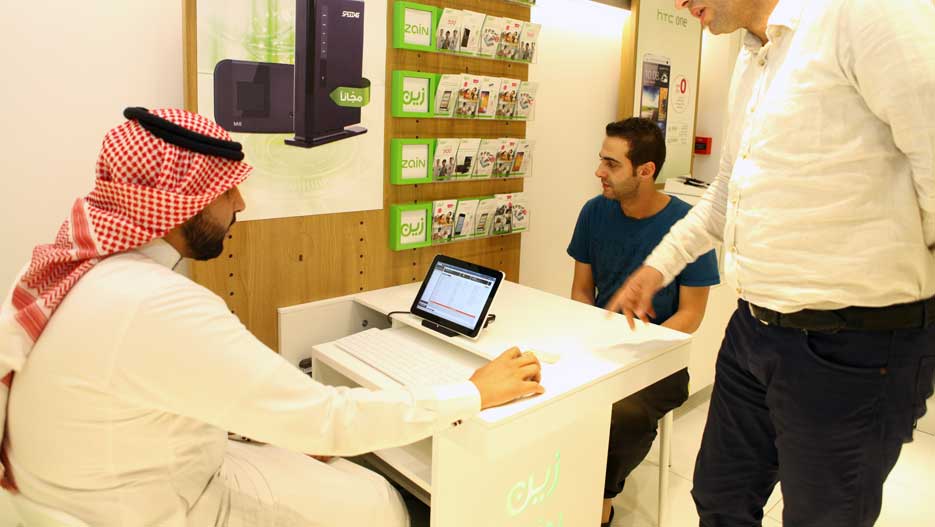
To do this, we are looking for scale. Scalability is very important in our business. The larger customer base and usage that we have, the better. We are seeing that happening. Especially now with data and video communication, which people are increasingly going for, they see that Zain can provide them with what they need. Before, when the services were based on voice only, people seemed to be hooked into their operator, almost like a hostage, because they didn’t want to have to change their telephone number, or because they wanted to hold onto the benefits which that operator provided.
They were reluctant to move to another operator. With data usage, you are not linked to a specific number and you can use any network for the data. The result is more flexibility in choosing an operator. A good analogy for this is to describe it like driving on a highway, and you see a lot of traffic up ahead, a lot of congestion, so you turn off onto another road. This is exactly what is happening now with data. If people are not happy with the quality of service provision from their current operator, they are more likely to try the Zain network, and then they will see that we have an excellent level of quality for data communication.
They are then happy with that, so they continue using Zain. We are pleased to be able to report that more people are using our network for data and that those who are using our network are happy with the level of the quality they are receiving. To summarise this point, we are growing and we can see that, in light of the growth of data usage and video communication, there is more growth in store for the Zain network. Zain can play a strong role in capturing the growing data usage in the Saudi market.
What about your competitors and their approach to data?

Our competitors are also very active in the data arena. However, with the high usage of data, this can make some networks congested in certain areas and people like to have alternatives. Networks with a large base of users are more likely to have issues with congestion in certain cities – and networks with more capacity will be able to capture the dissatisfied users from these networks. It’s like the highway analogy I was using: So long as the road you are on is fine, you’re happy to use it, but when you see that there’s a lot of traffic on it, you don’t mind using a different road that will still take you where you want to go. To apply this to data usage, when people are using the internet and data communication such as YouTube etc., but are unable to retrieve the information or videos they want, the will go and use an alternative provider who can take them where they want to go. Zain is playing that role of providing the Saudi customers with that alternative.
It is clear that data is a growing segment. Do you think that it will grow faster than mobile over the next three years? Which segments do you think will be the main drivers of growth over the next three years?
The industry is constantly changing. When we started out, there was a fixed network and people were happy to have phones at home or at the office. Then they discovered that it was possible to have public phones in the street. Then mobile telephony came, and faced some resistance. People were sceptical as to whether it would work; they considered a luxury, unnecessary, or only for business people. Then suddenly there was a boom in the mobile industry that took place all over the world and there was almost no limitation to who was using mobile phones. From 10 year-olds to 70/80 years-olds, everyone was using mobile technology. We reached 100% penetration and thought that this was the end of the story. However, then began to approach 200% penetration with mobile technology and were wondering what would come next. Now, something new is happening: data communication is transforming the world of telecommunications. This new layer of data communication is taking us to another level in telecoms and we don’t really know what the limits or boundaries of this world are.
It’s like its giving us new horizons with potentially no limits. The virtual world that is enabled by data communication is suddenly becoming more real than the real world, in which we are all dependent on the virtual reality. There is a feeling that a new world is being built here, with digital televisions and radios, internet banking, online shopping malls and the opportunity to get everything you need from the digital world.
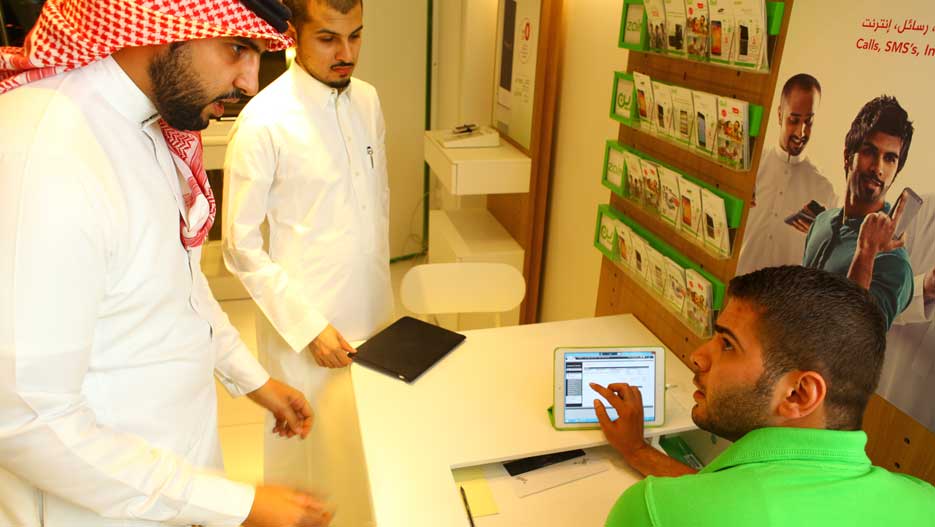
Everyone is joining in with it: banks, entertainment, education, health, you name it. In this sense, the telecommunication sector is becoming a main driver for all other activities. What we are doing is to help people to be there in the virtual world. We are opening channels, opening up the capacity and providing new technologies that will help them to be in the virtual world in the right way, in a way that will satisfy them every time they take a trip into it.
Finally, what is your vision for Zain?
You might think this is somewhat surprising, but as the CEO of Zain KSA, I am not looking to take us to become the number one operator in the kingdom; not even number two. What we want at Zain is to be the operator of choice for the customer, where they will find themselves being happy with us. It is precisely because we are number three that I want our customers to know that we will be trying harder and doing our best to satisfy their needs.
It is precisely because we are number three that I want our customers to know that we will be trying harder and doing our best to satisfy their needs.
As a result, we will be winning in terms of going the extra mile to please and delight our customers. We are therefore putting the customer at the heart of our operation and we are trying our best to do everything we can to satisfy our customers’ needs. In a humble way, we are therefore aiming to be a solid number three that is close to its customer, that is customer-friendly and that is the preferred operator for the Saudi customers.
We are, of course, a member of the Zain Group, which is a telecom operator that is very active and very successful in the Middle East, with operations in different countries throughout the region. Being part of the Zain Group provides us with benefits such as being able to leverage the relationships with suppliers and to exchange best practices and know-how with other companies in the Zain Group. We also have a strategic partner with Vodafone to provide us with a wider scope beyond the Middle East.
We can also exchange know-how and best practices with the Vodafone Group, which will allows us to improve and to compete at a global scale. However, at the same time Zain KSA is a Saudi company. 63% of Zain KSA belongs to Saudi investors and more than 80% of our team is Saudi. We have a very skilled and talented team of technicians, engineers and sales staff that we are proud of. The team is working extremely hard and doing a lot to make Zain a very successful operation. So I am proud of our team, I am proud of what we are doing and I know that we, Zain KSA, can look forward to an even brighter future.